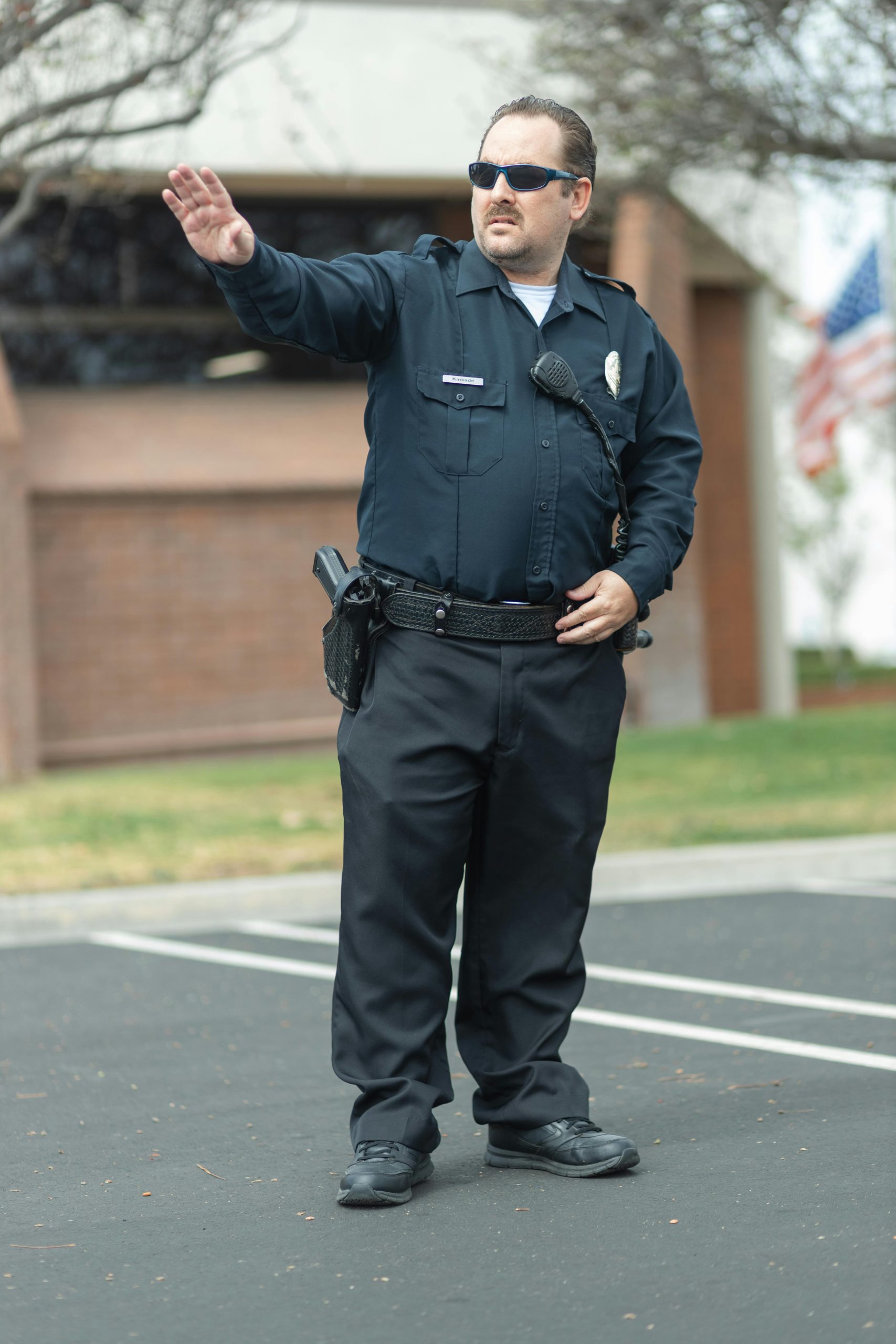 Buckle up your seatbelts and get ready for a wild ride through the twists and turns of Bosley’s Driving School saga! Meet Mr. Bosley, the daring entrepreneur behind this driving school extravaganza, with locations in the charming towns of Donaldsonville and Gonzales, Louisiana. Now, picture this: Mr. Bosley is on a mission to teach the art of driving, but not just any driving – he dreams of offering the elusive 38-hour driver’s education course. But, oh, the drama unfolds when his dreams clash with the stern rules and regulations of the Louisiana driver’s education system. Despite a denial that would make even the bravest soul reconsider, Mr. Bosley and his team continued their quest, issuing certificates left and right. Little did they know, the authorities were hot on their tail, leading to a showdown of epic proportions. Fast forward to courtroom battles, administrative hearings, and a rollercoaster of legal twists that could rival any Hollywood blockbuster. Will Mr. Bosley’s driving school dreams come crashing to a halt, or will he find a way to steer his way out of this legal maze? Strap in and find out!
Buckle up your seatbelts and get ready for a wild ride through the twists and turns of Bosley’s Driving School saga! Meet Mr. Bosley, the daring entrepreneur behind this driving school extravaganza, with locations in the charming towns of Donaldsonville and Gonzales, Louisiana. Now, picture this: Mr. Bosley is on a mission to teach the art of driving, but not just any driving – he dreams of offering the elusive 38-hour driver’s education course. But, oh, the drama unfolds when his dreams clash with the stern rules and regulations of the Louisiana driver’s education system. Despite a denial that would make even the bravest soul reconsider, Mr. Bosley and his team continued their quest, issuing certificates left and right. Little did they know, the authorities were hot on their tail, leading to a showdown of epic proportions. Fast forward to courtroom battles, administrative hearings, and a rollercoaster of legal twists that could rival any Hollywood blockbuster. Will Mr. Bosley’s driving school dreams come crashing to a halt, or will he find a way to steer his way out of this legal maze? Strap in and find out!
Mr. Bosley owns and runs Bosley’s Driving School for drivers’ education classes. The driving school has two locations—one in Donaldsonville and the other in Gonzales, Louisiana. The Donaldsonville location was licensed to teach 6 hours of classroom instruction, while the Gonzales location was licensed to teach the full 14-hour driver’s education course. Neither location was licensed to teach the 38-hour course. Louisiana offers two types of driver’s education courses: (1) A 14-hour course for individuals over eighteen, which requires 6 hours of classroom instruction and 8 hours of behind-the-wheel driving, and (2) a 38-hour course for individuals under eighteen, which requires 30 hours of classroom instruction and 8 hours of behind -the -wheel driving. La. R.S. 32:402. 1.
In October 2012, Bosley applied for permission to instruct the 38-hour driver’s ed course. On December 10, 2012, Bosley was notified via email that their application was denied because they needed to meet the curriculum requirements. Regardless of this denial, Bosley continued to issue certificates of completion of the 38-hour course to several students. When the State learned of this, they sent Bosley an order to cease further operations as a driving school and third-party tester in Louisiana. On March 27, 2014, the State notified Bosley that because he was providing students with the 38-hour driver’s education course despite needing to be licensed, his licenses to teach the 6-hour and the 14-hour courses were rescinded. Bosley filed an appeal and requested a hearing.
 A recent decision by the United States Court of Appeals for the Fifth Circuit highlights the complexities and high standards involved in proving employment discrimination and retaliation claims under Title VII of the Civil Rights Act of 1964. The case, Stroy v. Gibson, involved a Black physician employed by the Department of Veterans Affairs (VA) who alleged racial discrimination and retaliation following a peer review of his patient care.
A recent decision by the United States Court of Appeals for the Fifth Circuit highlights the complexities and high standards involved in proving employment discrimination and retaliation claims under Title VII of the Civil Rights Act of 1964. The case, Stroy v. Gibson, involved a Black physician employed by the Department of Veterans Affairs (VA) who alleged racial discrimination and retaliation following a peer review of his patient care. Insurance Dispute Lawyer Blog
Insurance Dispute Lawyer Blog


 In a recent Louisiana lawsuit, a woman’s attempt to sue her ex-husband for damages related to alleged domestic abuse during their marriage was initially blocked by the doctrine of res judicata. However, the
In a recent Louisiana lawsuit, a woman’s attempt to sue her ex-husband for damages related to alleged domestic abuse during their marriage was initially blocked by the doctrine of res judicata. However, the  The Louisiana Court of Appeal recently reversed a decision of the Civil Service Commission (CSC) that upheld the termination of a public employee for gambling while off-duty. The case involving Carnell Collier, a Quality Assurance and Safety Inspector for the Sewerage and Water Board of New Orleans (
The Louisiana Court of Appeal recently reversed a decision of the Civil Service Commission (CSC) that upheld the termination of a public employee for gambling while off-duty. The case involving Carnell Collier, a Quality Assurance and Safety Inspector for the Sewerage and Water Board of New Orleans ( Leotis Johnson, an employee of the
Leotis Johnson, an employee of the A recent
A recent  To ensure public trust in law enforcement, local government officials have the power to regulate police officers’ conduct both on and off duty. There are certain lines that police officers should not cross, even in their private lives. The following case shows how the New Orleans Police Department (“NOPD”) can terminate the employment of a long-serving police officer for fighting after a traffic accident and reinforce the high standard they hold their employees to.
To ensure public trust in law enforcement, local government officials have the power to regulate police officers’ conduct both on and off duty. There are certain lines that police officers should not cross, even in their private lives. The following case shows how the New Orleans Police Department (“NOPD”) can terminate the employment of a long-serving police officer for fighting after a traffic accident and reinforce the high standard they hold their employees to. Unfortunately, accidents at the workplace are not uncommon occurrences. What happens, however, when you are injured while traveling? Will you still receive workers’ compensation if you are not physically on the jobsite? The answers to these questions will depend on the facts of the case and whether you were acting within the scope of your employment. The following Caddo Parish case outlines this predicament.
Unfortunately, accidents at the workplace are not uncommon occurrences. What happens, however, when you are injured while traveling? Will you still receive workers’ compensation if you are not physically on the jobsite? The answers to these questions will depend on the facts of the case and whether you were acting within the scope of your employment. The following Caddo Parish case outlines this predicament.  Buckle up your seatbelts and get ready for a wild ride through the twists and turns of Bosley’s Driving School saga! Meet Mr. Bosley, the daring entrepreneur behind this driving school extravaganza, with locations in the charming towns of Donaldsonville and Gonzales, Louisiana. Now, picture this: Mr. Bosley is on a mission to teach the art of driving, but not just any driving – he dreams of offering the elusive 38-hour driver’s education course. But, oh, the drama unfolds when his dreams clash with the stern rules and regulations of the Louisiana driver’s education system. Despite a denial that would make even the bravest soul reconsider, Mr. Bosley and his team continued their quest, issuing certificates left and right. Little did they know, the authorities were hot on their tail, leading to a showdown of epic proportions. Fast forward to courtroom battles, administrative hearings, and a rollercoaster of legal twists that could rival any Hollywood blockbuster. Will Mr. Bosley’s driving school dreams come crashing to a halt, or will he find a way to steer his way out of this legal maze? Strap in and find out!
Buckle up your seatbelts and get ready for a wild ride through the twists and turns of Bosley’s Driving School saga! Meet Mr. Bosley, the daring entrepreneur behind this driving school extravaganza, with locations in the charming towns of Donaldsonville and Gonzales, Louisiana. Now, picture this: Mr. Bosley is on a mission to teach the art of driving, but not just any driving – he dreams of offering the elusive 38-hour driver’s education course. But, oh, the drama unfolds when his dreams clash with the stern rules and regulations of the Louisiana driver’s education system. Despite a denial that would make even the bravest soul reconsider, Mr. Bosley and his team continued their quest, issuing certificates left and right. Little did they know, the authorities were hot on their tail, leading to a showdown of epic proportions. Fast forward to courtroom battles, administrative hearings, and a rollercoaster of legal twists that could rival any Hollywood blockbuster. Will Mr. Bosley’s driving school dreams come crashing to a halt, or will he find a way to steer his way out of this legal maze? Strap in and find out! Employees are often exposed to stressful situations while at work, whether from unhelpful coworkers or understaffing. Under what circumstances are resulting mental injuries entitled to workers’ compensation?
Employees are often exposed to stressful situations while at work, whether from unhelpful coworkers or understaffing. Under what circumstances are resulting mental injuries entitled to workers’ compensation?  One frequent use of contracts is to establish how much someone will be paid for specified work. Clear contractual language can help prevent disputes down the road. What happens if you do not receive all the compensation to which you are entitled under your contract?
One frequent use of contracts is to establish how much someone will be paid for specified work. Clear contractual language can help prevent disputes down the road. What happens if you do not receive all the compensation to which you are entitled under your contract?